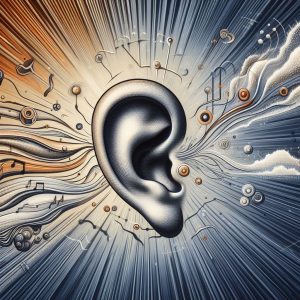
Effective communication is not just about articulating your thoughts; it’s equally about being an attentive and empathetic listener. In a world that often values speaking over listening, the skill of active listening stands out as a powerful tool for building strong connections and fostering understanding.
The Art of Active Listening:
Active listening goes beyond merely hearing words; it involves fully engaging with the speaker, understanding their message, and responding thoughtfully. In today’s fast-paced world, where distractions abound, the art of active listening is a game-changer.
Why Does Active Listening Matter?
1. Building Trust:
Active listening builds trust by conveying genuine interest in the speaker’s perspective. It creates a space where individuals feel heard and valued.
2. Avoiding Misunderstandings:
Miscommunications often arise from a lack of listening. Active listening helps prevent misunderstandings by ensuring that everyone involved is on the same page.
3. Enhancing Relationships:
In both personal and professional relationships, active listening strengthens connections. It fosters empathy and promotes a collaborative environment.
4. Problem Solving:
Effective problem-solving requires a deep understanding of the issues at hand. Active listening allows for a comprehensive grasp of the situation, leading to better solutions.
Tips for Becoming a Better Listener:
1. Give Your Full Attention:
Put away distractions, and focus on the speaker. This not only shows respect but also allows you to absorb the information more effectively.
2. Maintain Eye Contact:
Eye contact signals to the speaker that you are engaged and attentive. It establishes a connection and conveys sincerity. If you find direct eye contact uncomfortable, looking at the other person’s eyebrow keeps your gaze in the same direction without the intensity!
3. Practice Patience:
Avoid interrupting. Let the speaker express themselves fully before responding. Patience is a key component of active listening.
4. Reflect and Clarify:
Periodically reflect on what you’ve heard, and seek clarification if needed. This demonstrates your commitment to understanding the speaker’s perspective.
5. Empathise:
Put yourself in the speaker’s shoes. Understand their emotions and viewpoints. Empathy is at the heart of effective communication.
6. Minimize Judgment:
Suspend judgment and avoid forming opinions prematurely. Active listening requires an open mind.
With so much communication around us all the time, the ability to listen actively is a rare and valuable skill. It transforms conversations, creating an environment where ideas are exchanged, relationships flourish, and understanding prevails. By honing our active listening skills, we not only become better communicators but also contribute to a more connected and harmonious world.

